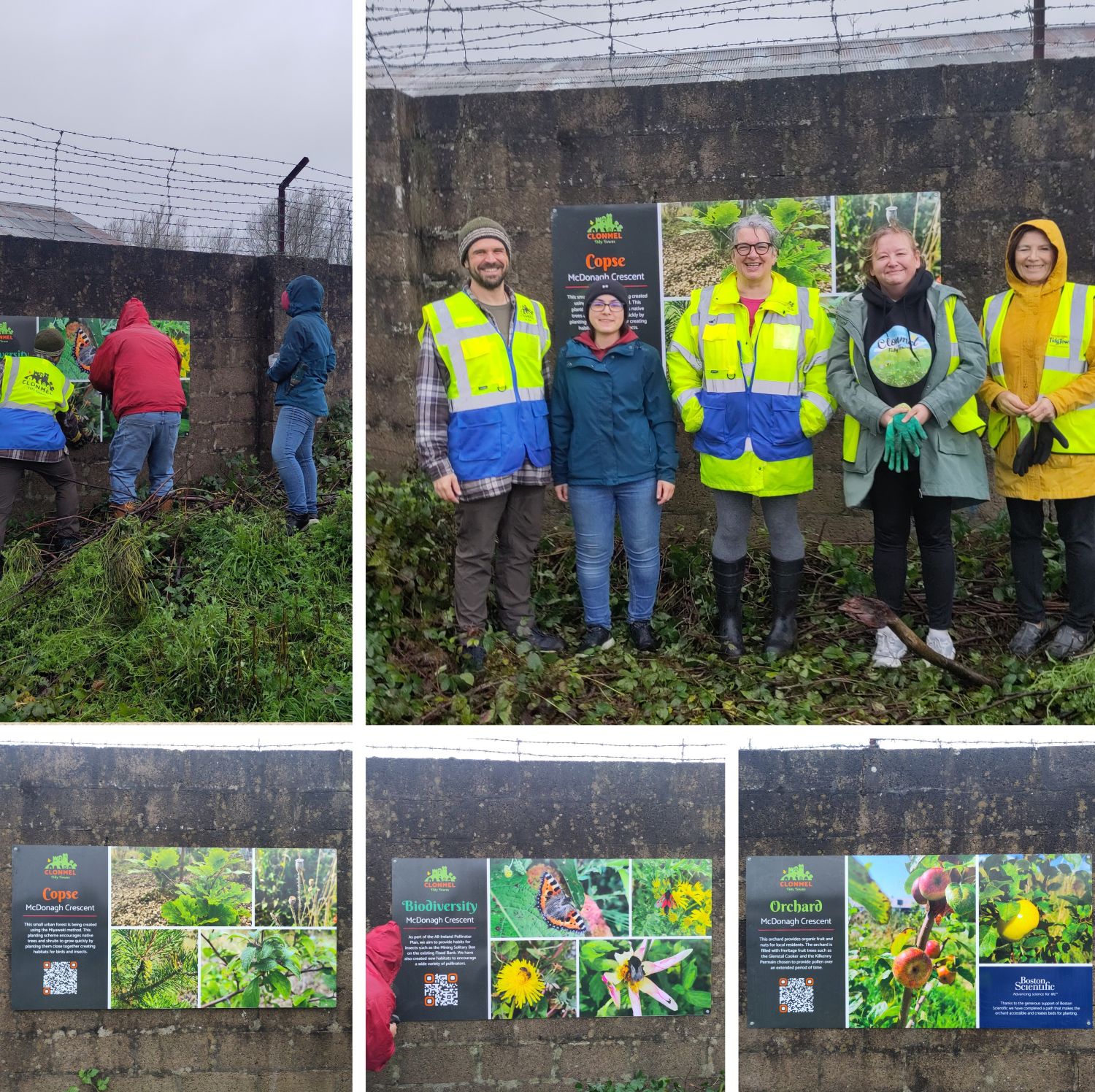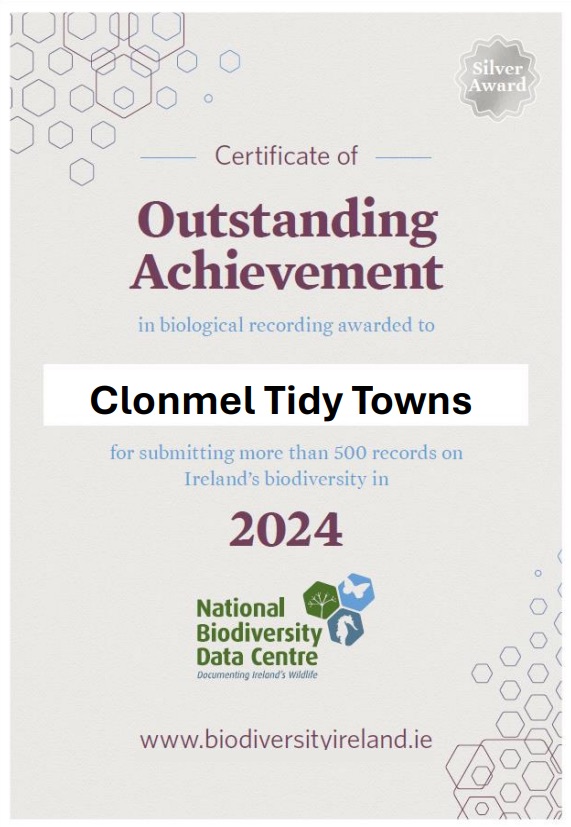Establishment of an orchard in the Old Bridge. This project will provide organic fruit and nuts for the local residents in the coming years as well as providing an environment for the encouragement of biodiversity.




Mc Donagh Crescent continues to provide us with great pleasure. There is always something to do and space to try new things. We take delivery of all types of mulch from the Council in Autumn. This cooperation is of great value to us as it has allowed us to begin the work of leveling the site as well as providing enrichment to the trees.
The copse is coming along nicely and we continue to add fruiting shrubs. We had planted lots of bulbs in the centre of the orchard along with wildflower seeds and herbs. We are experimenting with different mowing regimes in order to encourage biodiversity. We are delighted with the signs. Even the dull wet day we installed them didn't dampen our spirits.



We regularly record biodiversity on all these sites and log our findings at the Biodiversity Data Centre. We were awarded a ‘Certificate of Outstanding Achievement in Biological recording’ for submitting more than 500 entries to the database in the last year. It’s something we really enjoy doing and are aiming for gold this year.

We are in year three of our Orchard Project at McDonagh Crescent. This year, due to the generous support of Boston Scientific we have completed a path that makes the orchard accessible to all the residents. These different biodiverse habitats will provide year-round seasonal interest of form, colour and texture through the planting of hedges, shrubs and trees. In years to come, this orchard will provide shelter from wind, rain and sunlight for the residents. In a small way, we hope to raise awareness of Goal 2 of the UN Sustainable Development Goals by providing a source of fresh fruit for the community.


Our three year plan for the development of McDonagh Orchard is in its second year. While continuing to support the trees within the orchard, we have this year planted a small copse along the line of the Miyawaki method which encourages small urban forest by tightly planting native trees and shrubs in small spaces. This method requires a lot of maintenance over the first three years, particularly watering (see our sustainability project on Harvesting Rainwater).
Having acquired plants from ‘Trees on the land’ and ‘Irish seed savers’ in 2021 and 2022, we dug in the trees and hedging in our gardens in order to give them time to mature a little. We hired a mini digger and headed over at the beginning of March having checked the weather. Temperatures were rising and rain was forecast for the coming week. All good for planting trees. We had a great day. One of the main advantages of the Miyawaki method is that the plants tend to grow quickly and create habitat for birds and insects at a much faster rate. This, in addition to the fruit trees, should provide plenty of nourishment for Bumble Bees and solitary bees should they nest in the embankment or in the ‘bee hives’. The fruit trees have been chosen not only because they are heritage species but also to provide blossoms over as extended a period as possible.
Year two of our three Plan for McDonagh Crescent has seen the planting of a small copse of native trees beside the orchard. The purpose of this is to add additional opportunities for biodiversity and thus for pollination as well as promoting the idea of small urban forests. This forest is loosely based on the Miyawaki Urban Forest principle of planting tightly spaced native plants to encourage fast growth. The plants include Scots Pine, Oak, Blackthorn, Hawthorn, Holly, Beech…
We began this project last year during lockdown so initial progress was slow but since then we have planted our first orchard. While the primary focus has been to provide the community with food, we have also taken the opportunity to develop habitats for bees. We cleared space on the flood bank for Mining Solitary Bees to create homes. Going forward the inclusion of berried hedges and a copse of native Irish Trees will provide habitats and food for a variety of insects and birds.
This project will take about three years to complete which is perfect timing as the trees will require ongoing care to establish successfully.
A conversation with a work college opened up an opportunity for Tidy Towns to engage with the community in McDonagh Crescent on The Old Bridge. It also provides us with an area for tree planting and wild flower enhancement. The project has been slow to get off the ground as all communication had to be done by letter due to COVID until we got contact details from the residents.
Watch the video on Facebook of our volunteers digging out the bank to clear space for miner bees.